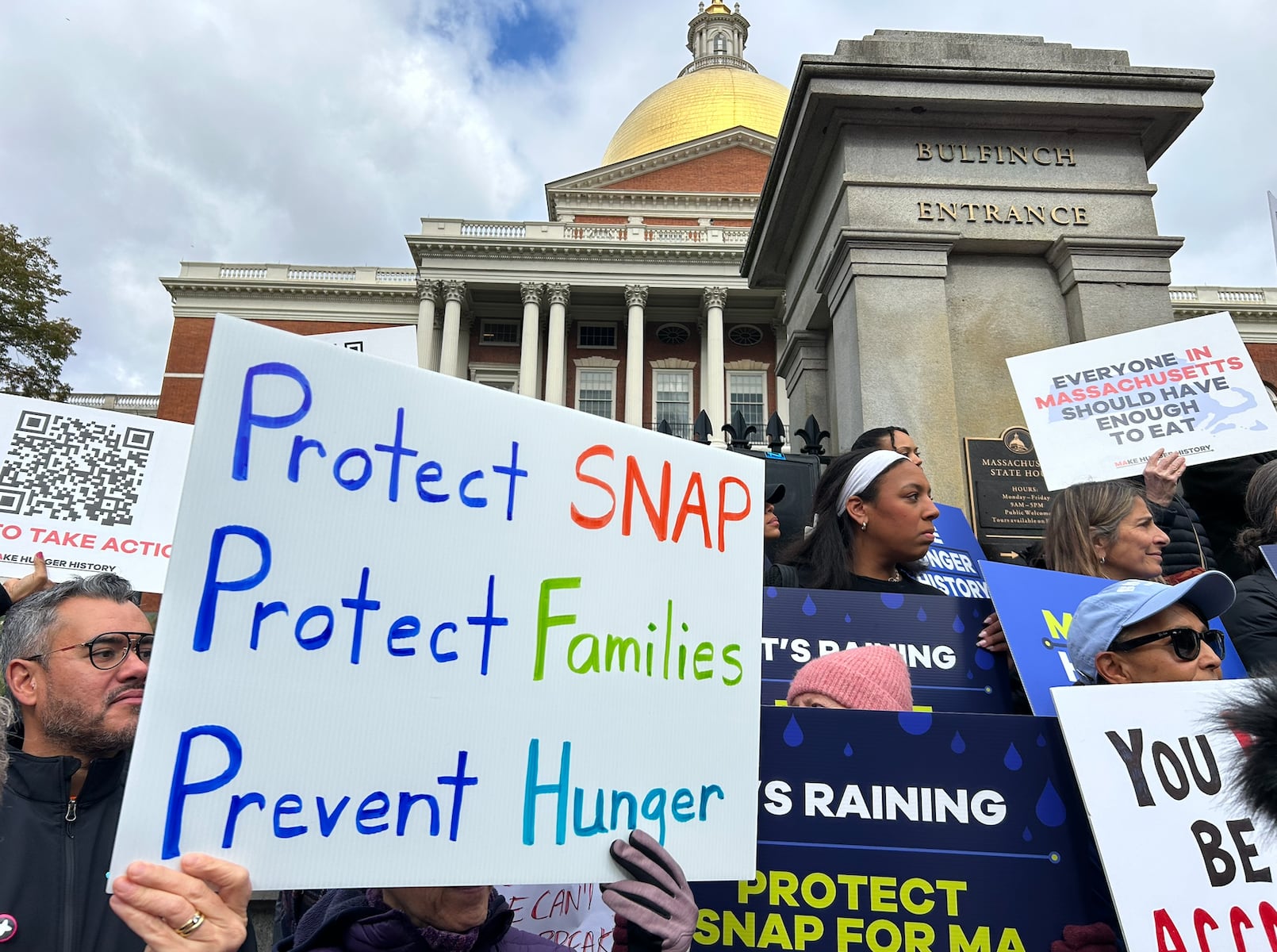UPDATE: The looming suspension of Supplemental Nutrition Assistance Program (SNAP) benefits has sparked urgent concerns for families across the nation, particularly impacting Black Americans. As of Saturday, November 4, 2023, over one in eight Americans rely on SNAP, with Black individuals comprising a staggering 25.7% of recipients despite only being 13.7% of the population.
Across New York City, long lines formed outside the Holy Apostles Soup Kitchen in Chelsea, where individuals like Willy Hilaire, a 63-year-old grandfather, rely on emergency food services. Hilaire, who is homeless and unemployed, worries that without SNAP, he will be unable to provide adequate meals for his two grandchildren. “I always tell them, ‘Grandpa is there for you,’” he expressed, adding, “Whatever I have, I’ll give it to you.” The urgency of the situation cannot be overstated.
Federal judges ruled on Friday that the Trump administration must utilize contingency funds to continue financing SNAP during the ongoing government shutdown. However, SNAP recipients were informed that benefits would still be lost starting Saturday, with restoration potentially taking at least one week. This quick turnaround leaves vulnerable families scrambling for food.
Government data highlights the disproportionate impact on Black Americans, who, while representing 13.7% of the U.S. population, account for a staggering 25.7% of SNAP recipients. Marc Morial, president of the National Urban League, stated, “There’s so much discrimination in the workforce, so much discrimination in America today, that Black people who were enslaved and segregated for 350 years are still fighting for economic parity.”
The implications of cutting SNAP benefits extend beyond immediate hunger. Current economic data indicates that Black unemployment rose from 6.2% to 7.5%—the highest level since October 2021—and median Black household income fell by 3.3% last year, now at $56,020, approximately $36,000 less than white households. The loss of grocery dollars could force families to choose between basic necessities like rent and utilities.
In response to the crisis, New Jersey Governor Phil Murphy declared a state of emergency, stating, “We will not stand by while families face hunger.” This declaration aims to mitigate the fallout from the federal aid cuts.
As families brace for the impact, many are turning to local organizations for assistance. Pastor Cleo Lewis, who leads a street ministry in Phoenix, organized a food drive to support families facing food insecurity. “Now we’re having to increase our presence, dealing with issues of substance and material needs that we know are significant,” Lewis said.
Tribal nations are also feeling the pinch. The ongoing SNAP crisis has prompted numerous tribal leaders, including those from the Spirit Lake Nation and Cherokee Nation, to declare states of emergency. Reports indicate that the Food Distribution Program in Indian Reservations (FDPIR) is still active but unable to serve Native Americans already enrolled in SNAP.
While the immediate future remains uncertain, the potential restoration of SNAP benefits before the end of November is not a guaranteed solution. Nonprofit leaders warn that low-income families may face financial setbacks that could persist into the next year.
As misinformation about SNAP recipients continues to circulate, it is vital to recognize that two-thirds of the over 40 million beneficiaries are individuals who typically would not be expected to work, including children, the elderly, and people with disabilities.
This urgent situation is developing rapidly. Stakeholders across the nation are calling for immediate action and support to safeguard the livelihoods of millions who depend on SNAP. The time to act is now—families cannot afford to wait.
